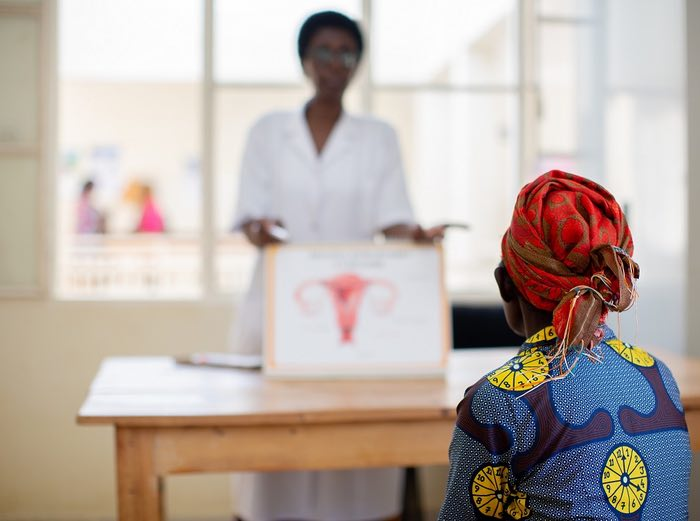
Nurse uses a poster to explain cervical cancer to a patient in Rwanda
CHAI (Clinton Health Access Initiative) has published a paper in Global Health: Science and Practice detailing the lessons learned from Rwanda’s rollout of a cervical cancer screening electronic medical record system.
Cervical cancer is the second most common cancer among women in Rwanda. An estimated 4.35 million Rwandan women 15 years and older are at risk of developing cervical cancer. Annually, just over 1200 women are diagnosed with cervical cancer, and 67 percent (829 women) die from it.
In 2020, the government piloted a test-and-treat program across seven hospitals and 101 health centers in five districts. The program aimed to increase early cervical cancer screening and reduce mortality among women. Three years later, the government has rolled it out across public health facilities in 16 out of 30 districts in the country.
Before the program, health facilities relied on a paper-based medical record system. Facilities had challenges with poor data storage, accessing client information for follow-up visits, and fragmented information with the system. To support the rollout of the new test-and-treat program, the government with CHAI, and Partners In Health, designed and implemented a new electronic medical record system. The system aims to ensure all clients will be followed along the complete continuum of care. Some of the key takeaways from the rollout of the system include:
1. Establish a dedicated working group with a wide range of stakeholders providing input at every stage of the project
2. Ensure stakeholders understand the technical aspects of the system to inform systems development
3. Integrate user feedback to improve uptake
4. Use an adaptive training approach to ensure effective rollout
5. Identify dedicated resources for system maintenance to ensure sustainability(End)
